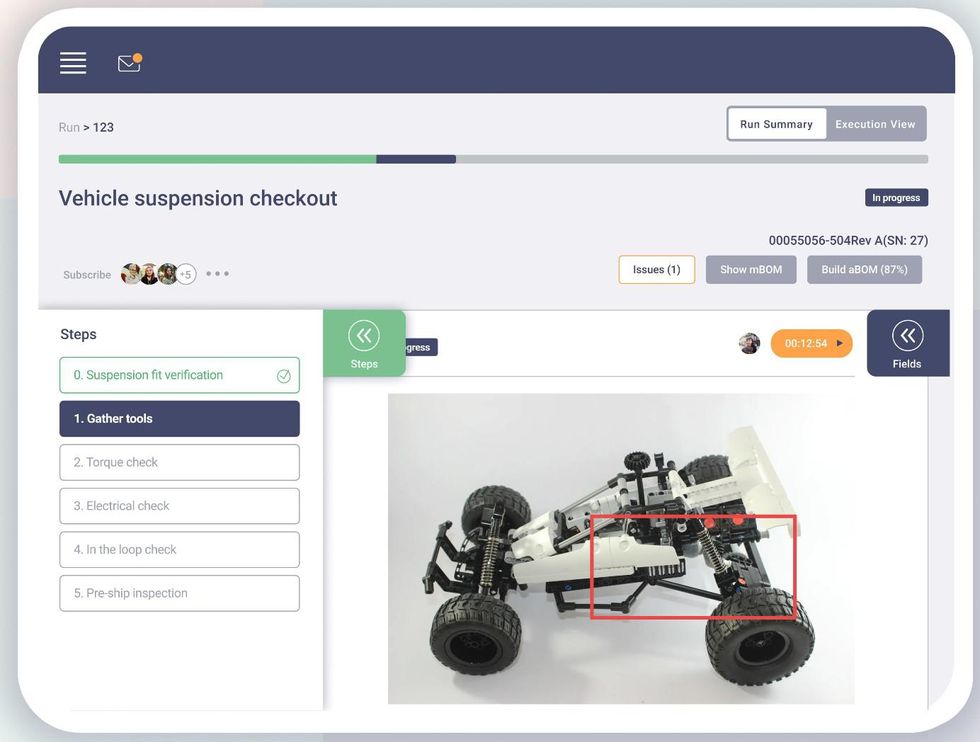First Resonance Lands $3.5M as Aerospace and EV Manufacturing Expand
Samson Amore is a reporter for dot.LA. He holds a degree in journalism from Emerson College. Send tips or pitches to samsonamore@dot.la and find him on Twitter @Samsonamore.

A work collaboration and inventory management software for aerospace manufacturers — including rocket-part maker Phase Four — First Resonance is poised to take off.
The startup raised a $3.5 million Series A on Wednesday, and will use the funding to expand its footprint in Los Angeles.
Eventually, the downtown-based company wants to be the software behind a new wave of mobility, from jetpacks to air taxis.
First Resonance initially targeted aerospace companies, but has since expanded to other industries, including automotive and robotics. CEO Karan Talati said the company eventually plans to help build air taxis.
"We're bringing on companies even right now that start to get into the kind of blurry lines of what the future of mobility looks like," Talati said.


The new round of funding will allow the company to double — "if not triple" — its headcount by the end of this quarter and develop its main product, the Ion factory management software, which allows manufacturers to automate and streamline operations.
The funding round was led by Blue Bear Capital, a Beverly Hills-based venture capital firm that looks to invest in automation, artificial intelligence and the industrialization of renewable energy.
First Resonance has now raised a total of $5.3 million since its 2018 launch.
The startup began working remotely last March. Its six-person team is made up of engineers that come from top manufacturers in town including SpaceX, Toyota and NASA.
Blue Bear Capital partners Ernst Sack and Vaughn Blake decided to invest in First Resonance because they saw the long-tail potential for First Resonance's software as the market for electric cars soar and the space market expands.

First Resonance CEO Karan Talati
Manufacturing in both of those areas requires a complex set of processes.
"At the global level, the revolution of next-gen manufacturing is critical to solving the climate and mobility challenges that we'll be facing in the years ahead," Blake said. "First Resonance' software ignites that revolution by enabling the manufacturing workflows required to electrify transport, reach orbit and propel satellites."
The software lets factories automate their manufacturing and manage their supply chains, freeing up more time for engineers to focus on futuristic designs, Talati said. It also uses data visualization and analytics to help builders troubleshoot design issues.
First Resonance is already backed by notable firms including Santa Monica-based Wavemaker Partners and Westwood-based Fika Ventures, but Blue Bear has a foothold in Texas, where aerospace activity and manufacturing are exploding, giving it an edge over other firms. Elon Musk has reportedly moved to Austin, and some of SpaceX's manufacturing has migrated to Boca Chica Village in Texas.
"It's been really great [to access] new customer acquisition or networks, with their extended team in San Francisco as well as Texas," Talati said, noting at First Resonance has plans to expand far beyond Los Angeles' borders.
- The Early-Stage Startups in LA Set to Take Off in 2021 - dot.LA ›
- First Resonance Raised $14 Million - dot.LA ›
Samson Amore is a reporter for dot.LA. He holds a degree in journalism from Emerson College. Send tips or pitches to samsonamore@dot.la and find him on Twitter @Samsonamore.



 Image Source: Skyryse
Image Source: Skyryse
 Image Source: Northwood Space
Image Source: Northwood Space